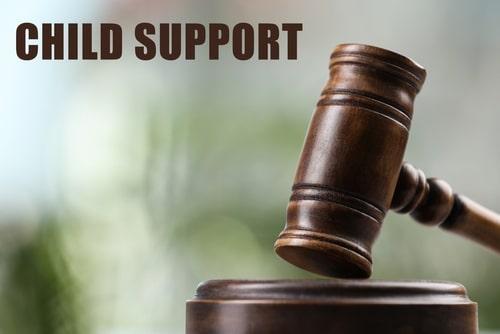Recent Blog Posts
What is the Difference Between Sole Managing Conservator and Joint Managing Conservator?
 People use the term “child custody” to refer to parenting arrangements when parents are divorced or unmarried. However, Texas law specifically refers to custody issues in terms of “conservatorship” and “possession and access.”
People use the term “child custody” to refer to parenting arrangements when parents are divorced or unmarried. However, Texas law specifically refers to custody issues in terms of “conservatorship” and “possession and access.”
In this blog, we will discuss when a Texas parent may be deemed a “sole managing conservator” or “joint managing conservator” and how this influences each parent’s parenting responsibilities.
Sole Managing Conservatorship
Many people are familiar with the terms “joint custody” and “sole custody.” In Texas, a sole managing conservator can be compared to having sole custody of a child. If a parent is a sole managing conservator, he or she has the right to make decisions about the child's upbringing. The parent has sole responsibility for making decisions about:
-
The child's education
What Is a Prenup and Why Would I Need One?
 A prenuptial agreement – also referred to as a prenup – is a legal contract that couples enter into before they get married. The agreement sets out the terms and conditions for how assets, property, and financial affairs will be handled if the marriage ends in divorce. Although some people may view prenups as unromantic, there are many reasons why entering into one is a wise decision.
A prenuptial agreement – also referred to as a prenup – is a legal contract that couples enter into before they get married. The agreement sets out the terms and conditions for how assets, property, and financial affairs will be handled if the marriage ends in divorce. Although some people may view prenups as unromantic, there are many reasons why entering into one is a wise decision.
Protects Assets
A prenuptial agreement can protect your individual assets. If you have accumulated wealth, property, or investments before the marriage, a prenup can ensure that you retain ownership of these assets in the event of a divorce. Without a prenup, your assets may become part of the “marital estate” and should the marriage end in divorce, your spouse could be entitled to half of that estate per the community property laws of the state of Texas – regardless of who acquired them.
Can I Get a Legal Separation in Texas?
 Almost every couple goes through periods in their marriage where things get so difficult between the two of them, one or both of them begin considering divorce. The couple will either work through these issues, decide to end their marriage or continue living contentiously with each other without dealing with the problems.
Almost every couple goes through periods in their marriage where things get so difficult between the two of them, one or both of them begin considering divorce. The couple will either work through these issues, decide to end their marriage or continue living contentiously with each other without dealing with the problems.
One option that some couples decide is to separate before they make the final decision to divorce. This allows them each to have their space and gives them the time they need to decide if they really do want to end their marriage or work toward reconciliation. If this is something you and your spouse are considering, there are some important facts you should be aware of when it comes to legal separations in Texas.
A Legal Separation
When a couple decides to separate, even though they are no longer physically living together, they are still considered legally married. This means that if one spouse is on the other spouse’s health insurance plan, they can remain on the plan. This is different than a divorce where a person’s benefits are terminated after a certain period of time.
How Is Child Support Determined in Texas?
 Every parent has a legal duty to provide the resources needed to ensure their child is taken care of, including food, clothing, and shelter. Even if the child does not live with the parent, they still must meet that legal duty. Child support is an obligation that every non-custodial parent in Texas is required to pay. It can also become one of the most contentious topics between co-parents. It is not uncommon for the parent who is been ordered to pay the support (the obligor) to resent handing over money to their ex-spouse or partner (the obligee), often losing sight of the fact that the money ultimately is going to the care of their child and not to support their ex.
Every parent has a legal duty to provide the resources needed to ensure their child is taken care of, including food, clothing, and shelter. Even if the child does not live with the parent, they still must meet that legal duty. Child support is an obligation that every non-custodial parent in Texas is required to pay. It can also become one of the most contentious topics between co-parents. It is not uncommon for the parent who is been ordered to pay the support (the obligor) to resent handing over money to their ex-spouse or partner (the obligee), often losing sight of the fact that the money ultimately is going to the care of their child and not to support their ex.
The following is a brief overview of child support in Texas. If you have specific questions or concerns, a child support attorney can help.
How Do Texas Courts Calculate Child Support?
Child support in Texas is calculated based on a percentage of the obligor’s monthly net income and is broken down as follows:
Is Your Spouse Secretly Planning a Divorce? Watch Out for These Financial Red Flags
 Unfortunately, there are many people who seek out the legal assistance of a divorce attorney who share they had no idea their spouse wanted a divorce until they got served with the divorce petition. Although there are marriages where divorce seems to come out of nowhere, there are usually some indicators that the person did not realize were actually signs that their spouse was planning their exit strategy from the marriage. Although these signs may not always mean a spouse is planning on leaving, they may be warnings that something is going on and you should consider seeking out legal advice to ensure your best interests are protected.
Unfortunately, there are many people who seek out the legal assistance of a divorce attorney who share they had no idea their spouse wanted a divorce until they got served with the divorce petition. Although there are marriages where divorce seems to come out of nowhere, there are usually some indicators that the person did not realize were actually signs that their spouse was planning their exit strategy from the marriage. Although these signs may not always mean a spouse is planning on leaving, they may be warnings that something is going on and you should consider seeking out legal advice to ensure your best interests are protected.
No Deposits in Joint Financial Accounts
In the majority of marriages, spouses have joint financial accounts that they use to pay household bills and other expenses. If your spouse suddenly stops depositing their pay into the joint account, that could be a red flag that they are making plans to file for divorce. Opening up an individual account is one of the first things that a divorce lawyer may suggest to a client that is planning on ending their marriage.
Do I Need an Order of Protection to Deal with My Ex’s Stalking?
 In Texas, just as in every other state in the country, stalking is considered a serious crime. The Department of Justice’s Office on Violence Against Women (OVW) defines stalking as “engaging in a course of conduct directed at a specific person that would cause a reasonable person to fear for his or her safety or the safety of others or suffer substantial emotional distress.”
In Texas, just as in every other state in the country, stalking is considered a serious crime. The Department of Justice’s Office on Violence Against Women (OVW) defines stalking as “engaging in a course of conduct directed at a specific person that would cause a reasonable person to fear for his or her safety or the safety of others or suffer substantial emotional distress.”
One of the most frequent times a stalker’s behavior is triggered and during a divorce or breakup. If you are going to end a relationship and your partner is harassing, stalking, or threatening you, obtaining an order of protection is a critical first step in keeping you and your children safe.
Stalking Statistics
It is estimated that almost 14 million people a year are stalked, with one in three women and one in six men reporting they have been stalked. The majority of people who are being stalked know their stalkers – 40 percent are stalked by a current or intimate partner and 42 percent are stalked by an acquaintance. Approximately 75 percent of people who are being stalked are eventually threatened with physical violence by their stalker.
What Are the Benefits of a Postnuptial Agreement in Texas?
 Most people are familiar with the term "prenuptial agreement," but fewer are familiar with postnuptial agreements. Like a prenuptial agreement, postnuptial agreements or "postnups" protect spouses' financial interests in the event of divorce or the death of a spouse. However, postnuptial agreements are signed after the couple is already married. Many people draft postnuptial agreements after receiving a large inheritance or another financial windfall. Other couples use postnuptial agreements to protect their property rights and clarify financial obligations after a marriage has gone through a tumultuous period.
Most people are familiar with the term "prenuptial agreement," but fewer are familiar with postnuptial agreements. Like a prenuptial agreement, postnuptial agreements or "postnups" protect spouses' financial interests in the event of divorce or the death of a spouse. However, postnuptial agreements are signed after the couple is already married. Many people draft postnuptial agreements after receiving a large inheritance or another financial windfall. Other couples use postnuptial agreements to protect their property rights and clarify financial obligations after a marriage has gone through a tumultuous period.
What Can a Postnuptial Agreement Do for Me?
In Texas, postnuptial agreements can be used in many different ways. Some couples use postnups to ensure that their separate property remains separate and not subject to division in the event of divorce. Others might use postnups to create more equitable arrangements for spousal support or designate a spouse as the beneficiary of certain assets. Postnups can also be used to ensure that certain assets are excluded from the marital estate and will be passed on to children from a previous relationship after a spouse's death.
Children Can Be Happy After a Divorce
 When a married couple with children decides to split, often their biggest concern is how the divorce will affect their children. Many parents who have chosen to live their lives apart worry that their children will think the breakup was their fault or will resent the parents for it. Divorced parents are also often concerned that their children will not be the same after a divorce, but research shows that there is reason to be hopeful. Most children of divorce are able to adapt to their new two-home family and end up thriving in it.
When a married couple with children decides to split, often their biggest concern is how the divorce will affect their children. Many parents who have chosen to live their lives apart worry that their children will think the breakup was their fault or will resent the parents for it. Divorced parents are also often concerned that their children will not be the same after a divorce, but research shows that there is reason to be hopeful. Most children of divorce are able to adapt to their new two-home family and end up thriving in it.
Studies Show Most Children Adapt Well
A 20-year study conducted by noted psychologist Constance Ahrons and confirmed by others shows that about 80 percent of children of divorce are able to adapt to the divorce and lead happy, successful lives afterward. The majority of children whose parents get divorced do not experience permanent negative effects on their grades, social development, or mental health.
What Property Do I Get to Keep in My Texas Divorce?
 Many people have heard horror stories about divorcing spouses who are left with virtually nothing after the split. Their spouse took the house, the car, and even the dog in the divorce. While most divorce cases are not nearly as dramatic as these exaggerated stories would lead one to believe, protecting property rights is a crucial element of any divorce case.
Many people have heard horror stories about divorcing spouses who are left with virtually nothing after the split. Their spouse took the house, the car, and even the dog in the divorce. While most divorce cases are not nearly as dramatic as these exaggerated stories would lead one to believe, protecting property rights is a crucial element of any divorce case.
If you are getting divorced, it is important to understand and assert your rights with regard to household items, real estate, retirement accounts, cash, and other property.
Negotiated Settlement vs. a Divorce Trial
Texas courts will generally uphold any agreements or settlements that spouses reach with regard to the division of property in a divorce. You and your spouse have the right to divide your community property however you see fit. In an amicable divorce case, the spouses may be able to sit down and discuss a fair division of assets without the court’s involvement. Even if the split is amicable and cooperative, it is best to get legal advice from an attorney regarding property division during divorce. There may be tax-related consequences and other legal factors spouses have not thought about that can heavily influence the decision.
What Happens to Commingled Assets During Divorce?
 When a couple decides to divorce, they must divide their property between them. As one might expect, each spouse brings property into the marriage, but community property is also acquired throughout their relationship. Some couples are exceedingly careful about segregating their respective personal property, while others pay little attention to the matter until divorce becomes a possibility. If you are in a position where your personal property has become commingled, or "mixed in", with your spouse’s, consulting an experienced divorce lawyer may be the best option for you.
When a couple decides to divorce, they must divide their property between them. As one might expect, each spouse brings property into the marriage, but community property is also acquired throughout their relationship. Some couples are exceedingly careful about segregating their respective personal property, while others pay little attention to the matter until divorce becomes a possibility. If you are in a position where your personal property has become commingled, or "mixed in", with your spouse’s, consulting an experienced divorce lawyer may be the best option for you.
What Is Commingling?
Commingling occurs when two individuals’ separate property becomes intertwined or mixed. The best example of this is an individual depositing individually-owned funds—money he or she made before the marriage or received as an inheritance during the marriage—into a joint marital checking account. Doing so, in most cases, causes the deposited funds to lose their identity as separate property.

 6160 Warren Pkwy, Suite 100, Frisco, TX 75034
6160 Warren Pkwy, Suite 100, Frisco, TX 75034
 214-764-8033
214-764-8033


